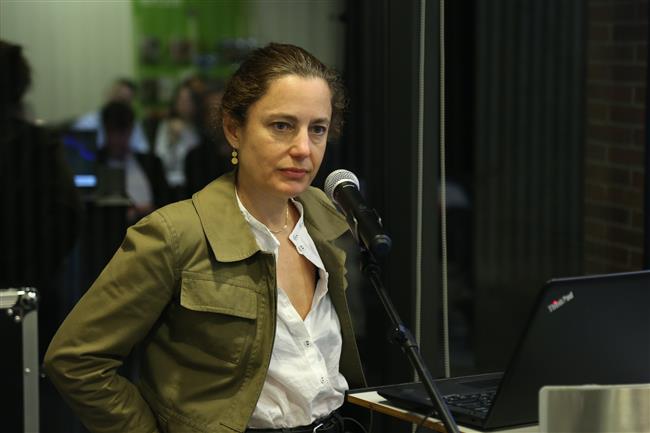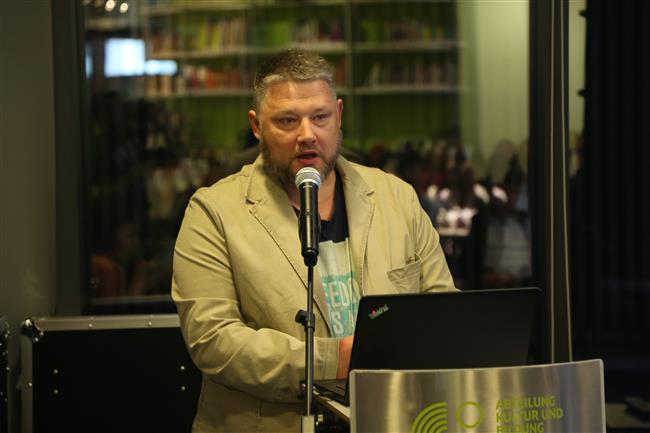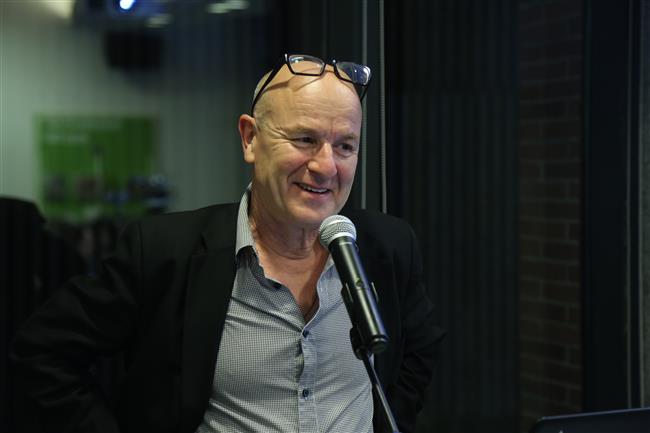European authors have China stories to tell
Book readings and talks are regular events in many Chinese bookstores and cultural venues with writers coming from different backgrounds, as seen in the recent second EU-China International Literary Festival in Shanghai and Suzhou.
“It is quite refreshing to listen to writers from different European countries, especially those from places I don’t know or read much about,” said Tracy Lin, a university student who is running a WeChat account that recommends foreign books. “Many readers like me are attracted to stories set in places that are new or exotic to us.”
The festival, which ended last weekend, was organized by the European Union to China, which invited authors from 11 countries to discuss topics including “Quarry for Ideas” and “Characters Keep the Pages Turning.”
The authors from Bulgaria, Czech Republic, Estonia, France, Germany, Hungary, Ireland, Latvia, Portugal, Slovenia and Spain have written poems, short stories, science fictions, historical novels and screenplays, among many more genres. Some of their works have been translated and published in China, while others drew interest during the festival.
Shanghai Daily chatted with three authors about their books and China experiences.
Colombe Schneck
The French writer and documentary director had the Chinese translation of “La Reparation” published this year. The novel records part of Schneck’s family history during World War II, following and discovering the past of many women in her family.
Her novels and documentaries often focus on the fate and achievements of women around the world.

Q: There have been many novels and non-fiction accounts of the sufferings of the Jews, how is your novel different?
A: It is a story of how “I” discover the secrets and real experience of the women in my family, how they managed to remain elegant and optimistic confronting whatever sufferings.
Their experience has greatly influenced not only their lives, but also everyone else in the family. It is the same for a nation or the world that the young generation should not forget the history, but to learn about it, to understand it and to inherit it.
Q: All your novels and documentaries feature women, why?
A: I come from a family of strong women. My grandmother went to Paris for university in the 1920s, very rare at the time but nobody in the family had any doubts. She went back to work at the age of 55, after my grandfather passed away. I was also brought up in equality and never realized I was different from my brothers.
It wasn’t until I was 17 and accidentally got pregnant that I discovered my body was actually different. And I recorded that experience into the book “17.”
Q: You recommended this book to your Chinese editor for publishing in Chinese. Why this book?
A: Because that’s a universal issue for all women in the world – pregnant and abortion and freedom of your own body.
It was a shock to me when I was 17 and realized my body was actually different from boys. To have that freedom, it needed a price and recovery.
For years, I continued to think about it, about how this freedom is taken for granted but it actually was acquired after a fight by many.
Indrek Hargla
The 48-year-old author from Estonia writes both science fiction and suspense novels. He is especially known for his “Apothecary Melchior” medieval crime series. The detective novels set in 15th-century Tallinn are being adapted for the silver screen.

Q: This is your first time in Shanghai and China. What’s your impression?
A: I definitely did not expect to see so many trees and plants among the modern buildings.
Shanghai, especially by night, has a futuristic atmosphere. It makes you think of future cities with high-rises and imagine flying cars around them like in a sci-fi movie. Higher up the buildings are covered with fog and you wonder what kind of spacecraft would float up there.
Still, maybe even more inspiring were some tales and legends I heard in ancient gardens of Suzhou.
China is a miraculous blend of old and new, past and future.
Q: “Apothecary Melchoir” is being adapted for the cinema. How involved are you in the film project? Is it very different from writing novels?
A: I am involved in writing the script, but not directly in production. We are trying to preserve the atmosphere and medieval universe in the books while many themes need to be adapted into the script differently.
It’s very different from writing novels, as screenplays are technical blueprints. Writers don’t have the same kind of freedom in screenplays, and the writing somehow resembles engineering.
Q: Are there a lot of sci-fi writers in Estonia? How did you get into science fiction and then crime novels?
A: We don’t have that many professional freelance sci-fi writers, as the market is quite small, with a population of only a bit over 1 million. Horror stories based on folklore and cyber sci-fi are the most common themes.
I took up the genre in the late 1990s, when we didn’t have much in the genre in Estonia. I have always been a sci-fi fan, so it was an opportunity to be among the first ones to write. At the time, I didn’t know I made the most important decision in my life by writing the first story.
My science fiction often has a historical edge to it and I always love to mix sci-fi with the medieval history of Europe.
Chrisstian Y. Schmidt
The German writer and columnist has been living in Beijing since he moved there with his Chinese wife in 2005. In 2008, he published a book based on his travels through China in 2007 — “Alone among 1.3 Billion” — and it instantly became a bestseller in Germany.

Q: What inspired that trip in 2007?
A: After I moved to Beijing, I tried to learn Chinese and live like the Chinese, but eventually I realized I was helped by my German-speaking Chinese wife all the time.
I decided to take on the trip alone so that I would be forced to speak Chinese and handle everything in Chinese by myself.
It would be very different if I travel today, because back then there weren’t so many functions on the smartphone, no WeChat, no e-pay.
Q: There have been a lot of changes in Beijing since you moved there. What’s your impression?
A: I miss the old Beijing. On one hand, the changes have made it a cleaner and more organized city. On the other hand, the modernization has also made cities like Beijing or Shanghai a little more boring, to be like everywhere else, to have the same buildings and the same shopping malls.
Q: Do Germans understand China a little more now since you and other German writers have written a lot more about China?
A: I wrote a column about China for many years and I stopped in 2013 when I started to write my new novel “The Last Huelsenbeck,” which was published in April in Germany.
I still write about China and post many of them on social media, but I think the interest has faded a bit in the West. Many people still don’t exactly understand how China developed in all these years.
Certainly, they have seen the pictures and were amazed, but somehow they think that’s just Shanghai or Beijing, and the rest is still under-developed. They don’t understand the scale of this transformation in reality.
I have tried to tell them, and there was a huge interest in China back in 2008. Now, it seems that many European countries have so many problems within and are always wondering what the United States would do under the Trump administration, that ordinary people are drawn away from their curiosity about China.
















